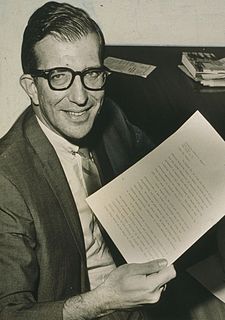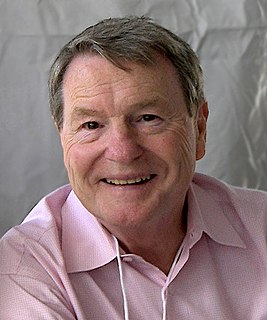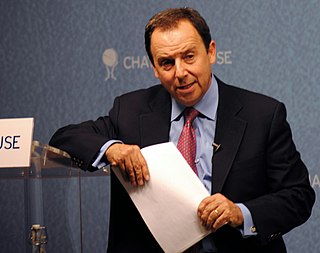A Quote by Alan Greenspan
We may be in a rapidly evolving international financial system with all the bells and whistles of the so-called new economy. But the old-economy rules of prudence are as formidable as ever. We violate them at our own peril.
Related Quotes
It's time to admit that public education operates like a planned economy, a bureaucratic system in which everybody's role is spelled out in advance and there are few incentives for innovation and productivity. It's no surprise that our school system doesn't improve: It more resembles the communist economy than our own market economy.
The most serious problems lie in the financial sphere, where the economy's debt overhead has grown more rapidly than the 'real' economy's ability to carry this debt. [...] The essence of the global financial bubble is that savings are diverted to inflate the stock market, bond market and real estate prices rather than to build new factories and employ more labor.
There are two issues that people sometimes confuse, but they're very closely related. There is the strength and the stability of the American financial system. And it's very important that that system remain stable and remain strong and lending is very important to consumers. Secondly, the economy. And what has gone on in financial system is impacting the economy. And as the economy is turning down, it is very important that lending continue to be available and be available to consumers. So what we're doing with this facility is to support - is to support consumer lending.
What is called 'capitalism'is basically a system of corporate mercantilism, with huge and largely unaccountable private tyrannies exercising vast control over the economy, political systems, and social and cultural life, operating in close cooperation with powerful states that intervene massively in the domestic economy and international society.
If Americans are frustrated with Congress, imagine their frustration with a group of international bank officials running our ecomomy-bankers who may not have as their motive either to see us out of debt to them or to strengthen our economy, society, international influence, or other elements of our way of life.
We need to remake and reinvent our housing system so that it supports the flexibility and mobility of our economic system broadly. Home-ownership is rewarded by the federal tax code, which made great sense when that piece of the American Dream, and all the consumption that came with it, was essential to rebuilding the economy. These days, however, it feels like a huge penalty to people who want to travel light within the new mobile economy without a mortgage to hold them back.
Only by transforming our own economy to one of peace can we make possible economic democracy in the Third World or our own country. The present economy generates wars to protect its profits and its short-term interests, while squandering the future. Unless we transform the economy, we cannot end war.
The President [Barack Obama], I think if you look at it from his shoes, you know, was facing a very difficult situation where he had to own Washington, tame New York, save a collapsing economy, with a collapsed financial system. He moved, I think, to a team that he felt was tried and true, in terms of dealing with financial crisis. That was his decision.




































